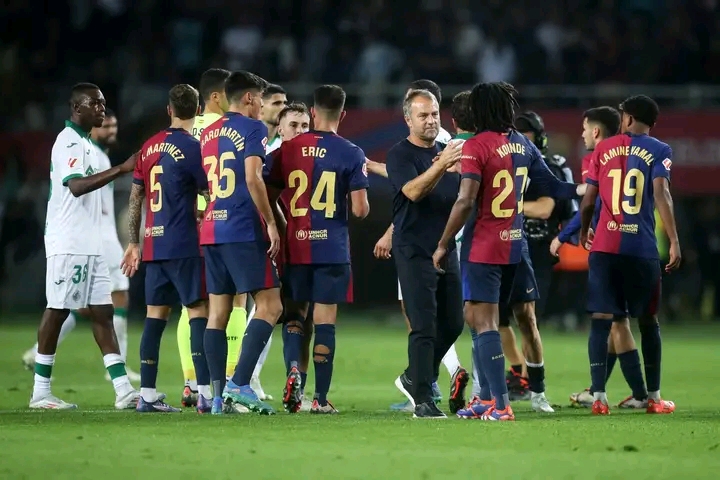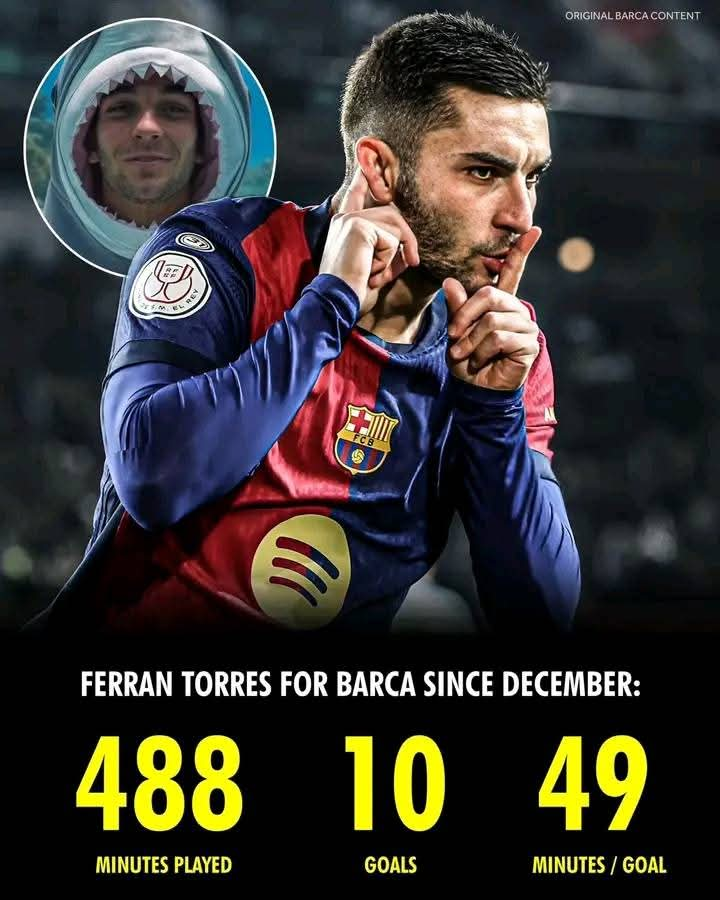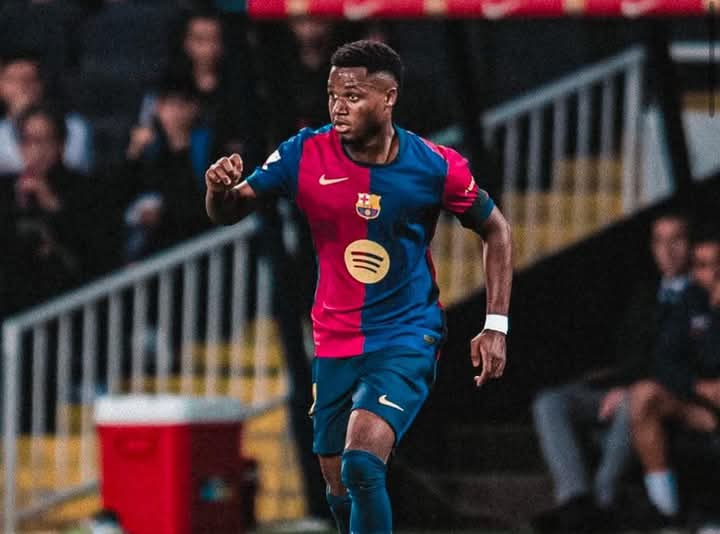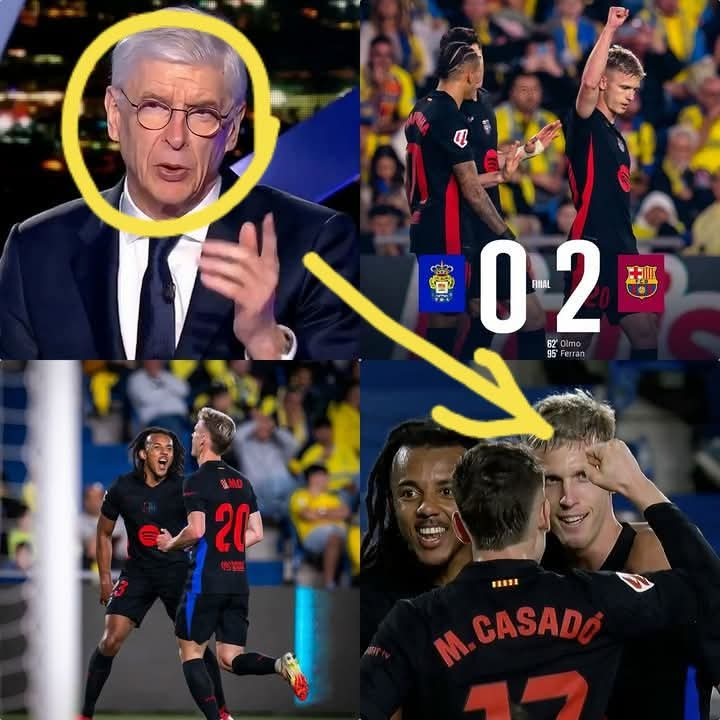**SportNo More Gifts – Hansi Flick Modifies His Strategy with Barcelona Substitutions**
Published 1 day ago on February 7, 2025
By ENOCH
Barcelona’s manager, Hansi Flick, has taken a decisive stance on squad management as the team heads into the critical final phase of the season. Known for his strategic precision, the German coach has chosen to focus on a select group of players he considers key to the club’s success in the upcoming months.
According to SPORT, Flick’s recent change in approach suggests that several players may find themselves on the sidelines, regardless of match outcomes. Players like Pablo Torre, Ansu Fati, Andreas Christensen, and Inaki Pena are reported to be among those who may see limited playing time. While this may seem harsh, it highlights Flick’s dedication to maintaining a tight-knit squad capable of delivering results in high-stakes games.
**Flick’s Core Group Approach**
Since January, Flick has relied on a core group of 16-17 players. These individuals are rotated carefully to ensure they remain in optimal physical condition and maintain match sharpness. This approach reflects his trust in this select group, whom he believes will play a crucial role in Barcelona’s pursuit of silverware.
This strategy has, however, left certain players in a difficult position. For instance, Ansu Fati has struggled to secure a consistent role despite efforts to involve him in training sessions. His ongoing exclusion from official matches indicates that the club may look to explore transfer options for him in the upcoming summer.
**Implications for Fringe Players**
The exclusion of players such as Torre, Christensen, and Pena implies that they could also be made available for transfer. Despite their undeniable talent, Flick’s decision to phase them out could signal Barcelona’s intent to streamline their squad and potentially generate funds for new signings.
However, not all fringe players face uncertainty. Young, homegrown talents like Pau Victor, Hector Fort, and Gerard Martin are seen in a different light. While they’re not part of Flick’s regular rotation, the club sees them as valuable assets for the future. These players are expected to be given occasional chances to gain experience and prove their worth.
**Tactical Flexibility**
Flick’s strategy is not just about maintaining a core group; it also emphasizes tactical flexibility. While key players are kept in peak condition for decisive moments, Flick remains open to adjusting his lineup based on match requirements. His selections are influenced by tactical considerations, allowing Barcelona to adjust seamlessly to different opponents and situations.
This method is a hallmark of Flick’s management style. At Bayern Munich, he employed a similar strategy, relying on a core group while ensuring squad depth was effectively utilized. This model led to multiple titles, including the UEFA Champions League, and Flick is now applying the same principles at Barcelona.
**A Ruthless Strategy for Maximum Efficiency**
Though Flick’s approach may seem ruthless, it is designed to optimize efficiency. With Barcelona competing on multiple fronts, managing squad rotation is essential to prevent fatigue and ensure peak performance when it matters. His strategy also fosters a competitive environment, where only those who consistently perform are guaranteed playing time.
This has sparked a sense of urgency among players. Those within Flick’s core group understand the responsibility on their shoulders, while those on the periphery recognize the need to prove themselves when given an opportunity. This dynamic encourages a culture of excellence, essential for a club like Barcelona.
**The Psychological Impact**
Beyond the tactical and strategic aspects, Flick’s decisions carry psychological consequences. Players sidelined may face challenges with confidence and motivation, but these struggles can also motivate others to fight for their place.
Ansu Fati’s case exemplifies this. Once seen as a successor to Lionel Messi, injuries and inconsistent form have seen him struggle to find his place. Flick’s lack of faith in him suggests that the club may consider selling him, but if Fati can respond positively, he could still have a future at Barcelona.
**The Future of Barcelona’s Squad**
As the summer transfer window approaches, Flick’s decisions will influence the club’s strategy for squad building. Players deemed surplus to requirements may be sold, while new signings could be made to strengthen the team. The club’s financial situation will also play a role in determining how extensive these changes will be.
For now, Flick’s focus is on securing results with his trusted core group. Every match moving forward is crucial, and the manager’s meticulous approach will be tested as Barcelona seeks to reclaim both domestic and European titles.
**Fan Reactions and Club Dynamics**
Flick’s strategy has sparked debate among fans and analysts. Some view his approach as necessary for success, while others argue that certain players deserve more chances. Regardless of public opinion, the manager remains firm in his commitment to this philosophy.
Internally, there is recognition that Flick’s approach stems from a desire to compete at the highest level. His methods may not always be popular, but they are based on a proven track record of success. The Barcelona hierarchy is likely to support his decisions as long as they lead to positive outcomes on the field.
**The Road Ahead**
As Barcelona enters the decisive stage of the season, Flick’s strategy will be under intense scrutiny. The success of his core group approach will be judged by the team’s ability to compete for major trophies. If successful, his methods will be validated; if not, questions will arise about the exclusion of certain players.
Ultimately, Flick’s strategy represents a calculated risk. By prioritizing efficiency and squad stability, he is shaping Barcelona into a team capable of handling the pressures of high-level football. Whether this leads to silverware remains to be seen, but one thing is clear—under Hansi Flick, Barcelona is moving forward with a clear purpose and direction.
**Balancing Youth and Experience**
One of the most interesting elements of Flick’s strategy is how he balances seasoned stars and emerging talents. While veterans like Ilkay Gundogan and Robert Lewandowski are central to his plans, the coach has also shown a willingness to incorporate young players—provided they meet his high standards.
Lamine Yamal, for example, has seen significant playing time under Flick, thanks to his raw talent and impressive performances. The teenager’s development highlights the type of player Flick values—dynamic, disciplined, and decisive in critical moments. Other promising prospects, such as Fermin Lopez and Vitor Roque, must continue to prove themselves to earn Flick’s trust.
**Long-Term Consequences for Barcelona**
Flick’s approach to substitutions and squad rotation could have long-term effects on Barcelona’s overall strategy. If his core group succeeds in securing trophies, his methods will likely become the new norm for squad management at the club. However, if the results fall short, questions may be raised about whether his approach alienated players who could have contributed.
Additionally, Barcelona’s transfer strategy will need to align with Flick’s philosophy. The club must focus on signing players who fit his tactical system, ensuring the squad remains competitive across all competitions. The outcome of this season will significantly influence how Barcelona approaches future squad-building efforts.
**Conclusion**
Hansi Flick’s decision to tighten his squad and limit substitutions is a bold move, but one that aligns with his vision for Barcelona. With crucial matches ahead, he is relying on a trusted core to lead the club to success. Whether this approach proves effective remains to be seen, but one thing is certain—under Flick, Barcelona’s future will be defined by efficiency, discipline, and a relentless pursuit of excellence.










